4 keys to digital transformation for 2022
We live in an era that has taught us that going digital is not an option or a long-term plan. The pandemic has changed our way of seeing things and modified the agenda of business leaders, accelerating digitization processes that, under other circumstances, would have been extended for years.
The beginning of the decade was marked by many short-term digitization projects in key areas. We have reached 2022 with all this learning and with a new mentality, more focused on everything that is digital and open to innovation.
Many organizations will be able to carry out their major digitization initiatives thanks, in part, to European funds allocated to promote them. For all this, we believe that 2022 will be the year of great digital transformation projects. Next, we provide 4 keys for this year:
Big data, analytics, machine learning and AI have become the current digital transformation levers with the greatest potential. In fact, the most successful global companies of recent years are showing us the path: to make an extensive use of data as a pillar for both business processes and value provided to users.
When speaking of business processes, we refer to robotization, but also to predictive maintenance, or optimization of supply chains through predictive demand analysis techniques. In the case of value provided to users, we refer to the customization of the user experience by storing and analyzing their interactions in order to anticipate their preferences and purchase decisions.
During these past years, we have seen how off-the-shelf AI (pre-configured AI modules able to perform these types of tasks) are available and ready to use. In 2021, Opentrends has become a benchmark in the use of this type of modules accessible in the cloud.
Environmental sustainability is the latest thing. Many of the great initiatives to be conducted in the coming years will have it as a goal. Along these lines, there is the new Law on Climate Change and Energy Transition, which binds Spanish cities with more than 50,000 inhabitants to establish urban Low Emission Zones (LEZ).
It is not the only major public initiative that pursues a healthier environment for citizens. The development of smart platforms in the city (Smart City) is gaining renewed strength with the implementation of smart buildings, and with the design of new waste management systems (Smart Waste) aimed at meeting the waste-sorting objectives set by the EU for the next few years. Finally, we foresee a trend to dissolve the smart city in the smart territory, with the implementation of large multi-tenant platforms that will serve several municipalities.
At Opentrends, we face this era of sustainability in the public sphere as one of the few technology consultancies that have the experience of having developed a Smart City platform, Sentilo, as well as having implemented a LEZ management platform. A multi-city architecture was used in both cases, which was a key feature for its implementation in the territory.
As Heraclitus said “Everything flows, everything is in motion and nothing lasts forever. No man ever steps in the same river twice, for it's not the same river and he's not the same man”. In 2022, we find ourselves in highly volatile times (VUCA), with markets and technologies continuously changing and evolving; the only constant we can be sure of is that everything changes.
In order to respond to these changes, survive and gain competitive advantage, we must find the quickest answer and the most suitable product. All companies, especially digital product ones, must gain a new quality: Business Agility, or the ability to create and respond to change in a positive way for the business despite the turbulent environment. Companies achieving this will have an invaluable competitive advantage.
This flexibility is what characterizes startups, which are designed from the outset with this mindset and take full advantage of agile methodologies while automating continuous delivery processes with DevOps. And there are not few the large, traditional companies that have understood that, in order to survive, they must address not only a technological change, but also an organizational and cultural one that completely modifies their way of working. At Opentrends, we are helping many companies to deal with this change through our Teams as-a-Service teams, but also by transforming the updating and spreading processes of their corporate knowledge by means of advanced eLearning services that include both eProctoring solutions and the virtualization of training exercises in the metaverse.
In 2019, a group of 200 CEOs of the largest and most influential companies in the US called the Business Roundtable (BRT), adopted a new Statement on the Purpose of a Corporation. In the declaration, the BRT mentions the delivery of value to customers, investment in employees, promotion of diversity and inclusion, fair and ethical deals with suppliers, support for communities, protection of the environment… all this before even mentioning shareholders.
This change is undoubtedly motivated by the rising expectations of employees and consumers, who are placing new demands on companies to serve a higher purpose and help guarantee a sustainable future. It is something that we have identified in the communication of companies in recent years: they look beyond profits to promote a sustainability agenda and foster a culture of responsibility and commitment. This could be seen as a simple image makeover, but it is not. There are rigorous methods to calculate the carbon footprint, as well as firms specialized in its calculation, and companies are making notable efforts to reduce it.
At Opentrends, we know that digital transformation can be approached in an environmentally friendly way. We do it every time we implement lightweight and cloud-native architectures mostly based on the use of serverless components. In fact, there are studies that prove that thanks to the cloud, the same computational task can be tackled with 88% less emissions, compared to a traditional data center. For example, AWS claims that they will operate with 100% renewable energy by 2025, and their commitment is to become a “net-zero carbon” company in 2040. The migration of workloads to the cloud will not only be motivated by economic savings, but also by a lower impact on emissions.
At Opentrends, we look optimistically towards 2022. We see a bright future ahead, with major transformation projects in both public and private spheres, and with a focus on technology as a force for positive impact.
If you are looking for a technology consultancy to help you with your digitalization process in 2022, do not hesitate in contacting us and we will put all our experience at your disposal.










